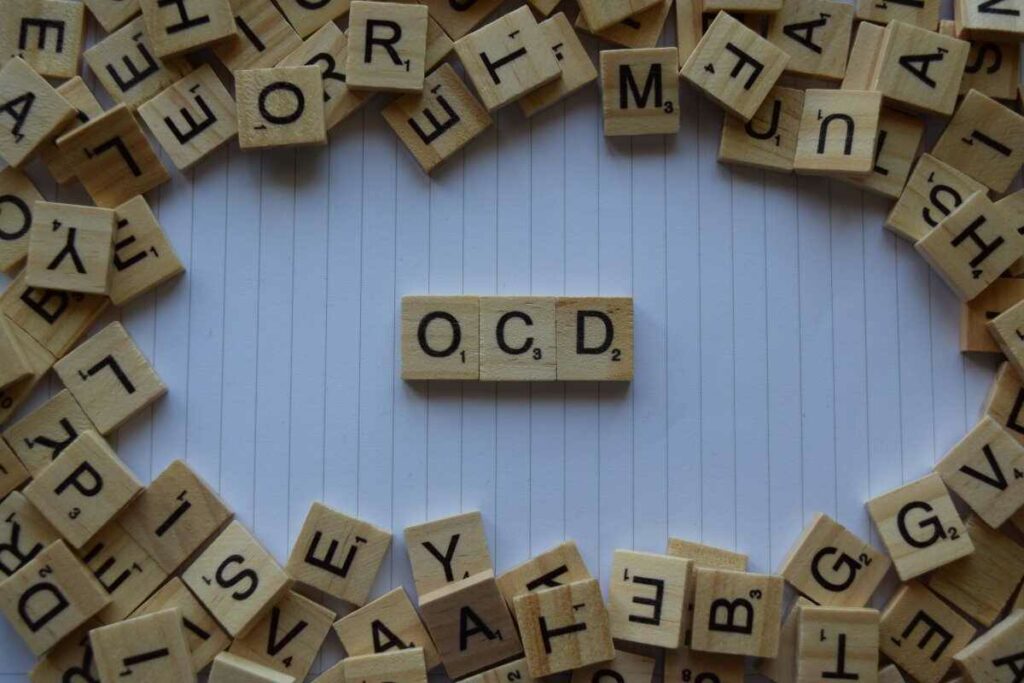If you have obsessive-compulsive disorder (OCD), you may feel like you’re alone. But you’re not. Millions of people around the world suffer from OCD, and there is help available. In this blog post, we will discuss everything you need to know about OCD medication. We will cover the different types of OCD medications available, as well as their side effects and dosage information. If you are considering taking medication for your OCD, this is the blog post for you!
Contents
When To Consider OCD Medication?
 If you’re here to know the OCD medication options available to you, it’s likely that you (or someone you love) have been struggling with OCD for some time. You may have tried various self-help strategies, therapy, and medication but nothing seems to work. If this sounds familiar, it may be time to consider other options such as starting on OCD medication.
If you’re here to know the OCD medication options available to you, it’s likely that you (or someone you love) have been struggling with OCD for some time. You may have tried various self-help strategies, therapy, and medication but nothing seems to work. If this sounds familiar, it may be time to consider other options such as starting on OCD medication.
Therefore, here are some of the symptoms of OCD that could warrant starting medication:
- You’ve had OCD for more than a year and it’s significantly impacting your life.
- You’ve tried various self-help strategies, therapy, and/or medication but nothing seems to be working.
- Your OCD is preventing you from going to work or school, maintaining relationships, or taking care of yourself.
- You’re experiencing suicidal thoughts or behaviors related to your OCD
If you identify with any of the above points, it may be time to start thinking about starting OCD medication. The first step would be talking to your therapist or doctor about what medications are available and right for you. Moreover, be sure to do your own research on the different types of OCD medications as well as their potential side effects.
What Are The Different Types Of OCD Medications?
There are many different types of OCD medications available, each with its own set of benefits and side effects. Here is a brief overview of OCD medications:
Selective serotonin reuptake inhibitors (SSRIs)
SSRIs are the most commonly prescribed type of medication for OCD. They work by increasing levels of serotonin, a chemical messenger in the brain that is thought to play a role in mood and anxiety disorders. These medications for OCD are typically taken once or twice daily and can take several weeks to reach their full effect.
Commonly prescribed SSRIs for OCD include;
- fluoxetine (Prozac)
- paroxetine (Paxil)
- sertraline (Zoloft)
- fluvoxamine (Luvox)
- citalopram (Celexa)
These medications are widely considered to be very effective for treating OCD, but they can also cause a number of side effects.
Serotonin and norepinephrine reuptake inhibitors (SNRIs)
 SNRIs are another type of medication that is commonly prescribed for OCD. They work by increasing levels of both serotonin and norepinephrine. These are two chemical messengers in the brain that are thought to play a role in mood and anxiety disorders. These medications for OCD are typically taken once or twice daily and can take several weeks to reach their full effect.
SNRIs are another type of medication that is commonly prescribed for OCD. They work by increasing levels of both serotonin and norepinephrine. These are two chemical messengers in the brain that are thought to play a role in mood and anxiety disorders. These medications for OCD are typically taken once or twice daily and can take several weeks to reach their full effect.
Commonly prescribed SNRIs for OCD include;
- venlafaxine (Effexor)
- desvenlafaxine (Pristiq)
- duloxetine (Cymbalta)
- levomilnacipran (Fetzima)
These medications are also considered to be very effective for treating OCD, but they can also cause a number of side effects.
Tricyclic antidepressants (TCAs)
TCAs are a type of medication that has been used to treat OCD for many years. They work by increasing levels of norepinephrine and serotonin. These are two chemical messengers in the brain that are thought to play a role in mood and anxiety disorders. These medications for OCD are typically taken once or twice daily and can take several weeks to reach their full effect.
Commonly prescribed TCAs for OCD include;
- clomipramine (Anafranil)
- desipramine (Norpramin)
- imipramine (Tofranil)
- nortriptyline (Pamelor)
- protriptyline (Vivactil)
TCAs are generally considered to be less effective than SSRIs and SNRIs, but they may be helpful for some people with OCD. They can also cause a number of side effects. But still, TCAs are the most preferred OCD medication as it is quite effective.
Monoamine oxidase inhibitors (MAOIs)
MAOIs are a type of medication that has also been used to treat OCD. It is believed that monoamine oxidase inhibitors are effective for OCD. Because they increase levels of norepinephrine and serotonin. These are two chemical messengers in the brain that are thought to play a role in mood and anxiety disorders. MAOIs are typically taken once or twice daily. Also, can take several weeks to reach its full effect.
Commonly prescribed MAOIs for OCD include;
- phenelzine (Nardil)
- isocarboxazid (Marplan)
- tranylcypromine (Parnate)
MAOIs are generally considered to be less effective than SSRIs and SNRIs, but they may be helpful for some people with OCD. They can also cause a number of side effects. Moreover, MAOIs can interact with a number of other medications and should not be taken with SSRIs or SNRIs.
Beta-blockers
 Beta-blockers are a type of medication that is sometimes prescribed for OCD. However, it is mainly prescribed for anxiety disorders. Beta-blockers work by blocking the effects of adrenaline, a hormone that is released in response to stress. These medications for OCD are typically taken as needed. And can help to reduce the symptoms of anxiety and OCD.
Beta-blockers are a type of medication that is sometimes prescribed for OCD. However, it is mainly prescribed for anxiety disorders. Beta-blockers work by blocking the effects of adrenaline, a hormone that is released in response to stress. These medications for OCD are typically taken as needed. And can help to reduce the symptoms of anxiety and OCD.
Commonly prescribed beta-blockers for OCD include;
- propranolol (Inderal)
- metoprolol (Lopressor)
- atenolol (Tenormin)
- nadolol (Corgard)
Moreover, these are considerably helpful for treating OCD and safe too. But they can cause a number of side effects. In fact, they should not be used if you have asthma or other respiratory problems.
What Are The Side Effects Of OCD Medication?
When you consider medication for OCD, it is important to weigh the risks and benefits with your doctor. All medications come with the potential for side effects. The most common side effects of OCD medication include:
- Dry mouth
- Headache
- Nausea or vomiting
- Diarrhea
- Constipation
- Anxiety or nervousness
- Insomnia or trouble sleeping
- Dizziness or lightheadedness
While these side effects are typically not severe, they can be bothersome. If you experience any of them, be sure to talk to your doctor. They may be able to adjust your dosage or switch you to a different medication.
Some people may also experience more serious side effects, such as;
- Allergic reactions (rash, hives, itching, difficulty breathing, chest tightness, or swelling of the mouth, face, lips,)
- High blood pressure
- Heart palpitations
- Mania
If you experience any of these side effects, call your doctor right away. These reactions can be life-threatening.
OCD medication can be an important part of treatment for many people. But it’s important to work with your doctor to make sure the benefits outweigh the risks.
Who Should Avoid Taking Medications?
There are some people who should avoid taking medications for OCD. These include;
- People with a history of substance abuse
- Those who are pregnant or breastfeeding
- People with certain medical conditions (e.g., liver disease, kidney disease, heart disease, etc.)
- People who are taking certain other medications (e.g., MAO inhibitors, anticonvulsants, antipsychotics, etc.)
If you fall into any of the above categories, it’s important to talk to your doctor before starting any medication for OCD. They can help you weigh the risks and benefits of taking medication and determine if it’s right for you. Moreover, when you consider any possible side effects, always be sure to talk to your doctor.
And, it is important to discuss some of the below-listed things before taking medications:
- The severity of your OCD symptoms
- How long you’ve been dealing with OCD
- Your family history (e.g., if anyone else has OCD or other mental health conditions)
- Other treatments you’ve tried for OCD (e.g., therapy, self-help, etc.)
- Your overall health and well-being
- Any other medications you’re taking
With this discussion, you will be able to go ahead with the best possible decision.
What Are The Alternatives To OCD Medication?
 When you are dealing with OCD, it can be tempting to want to find a quick fix. Medication can seem like the easy way out. However, it is important to remember that there are other options available to you.
When you are dealing with OCD, it can be tempting to want to find a quick fix. Medication can seem like the easy way out. However, it is important to remember that there are other options available to you.
Here are some of the alternatives to OCD medication:
Therapy
Therapies are great for helping you to understand and manage your OCD. There are many different types of therapy, so you can find one that best suits your needs.
- Cognitive Behavioral Therapy (CBT) – It basically focuses on helping you to change the thoughts and behaviors that are associated with your OCD.
- Exposure and Response Prevention (ERP) – This is a type of CBT that involves gradually exposing yourself to the things that trigger your OCD while learning how to control your response to them.
If you are unable to find the right therapist for your OCD condition, then you must our website, Mantra Care. Moreover, it is believed to provide satisfactory results to people with OCD. And they will also provide you with a list of the best therapists in your area. You can even take a free consultation today for more information.
Support Groups
Support groups are another great alternative to OCD medication. They can provide you with support and understanding from people who are going through the same thing as you. They can also be a great way to find information and resources. In fact, support groups are so helpful that people require them in their way to recovery.
Self-Help and Coping Strategies
There are also many self-help and coping strategies that you can use to manage your OCD. These include things like relaxation techniques, journaling, and exercise. You can also find helpful information and resources on websites like ours. Moreover, self-help is the primary focus of Mantra Care.
This also includes self-relaxation and mindfulness techniques. As it is evident, there are many alternatives to OCD medication. You just have to find the one that works best for you. Remember, you are not alone in this battle. There are many people who are fighting OCD every day. You can also join our website and be a part of the community today.
Conclusion
To conclude, OCD medication is a complicated but important topic. There is no one right answer, and what works for one person may not work for another. The most important thing is to talk to your doctor and come up with a plan that’s right for you.
In fact, you should not take medication without consulting your doctor first. If you or someone you know is struggling with OCD, there are many resources available to help. Remember, you are not alone. With the right treatment, anyone can overcome OCD. Thanks for reading!
If you are looking for affordable Online OCD Counseling MantraCare can help: Book a trial OCD therapy session


